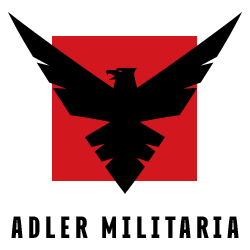Showing 172–180 of 244 resultsSorted by latest
-
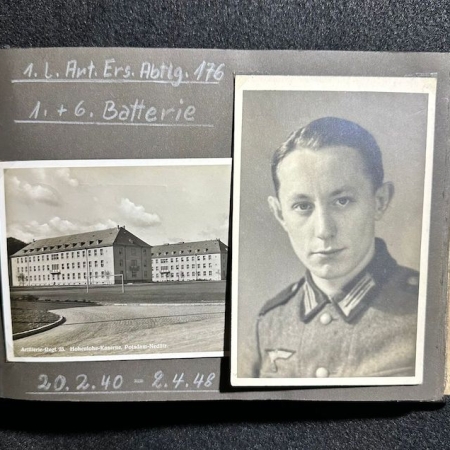
-
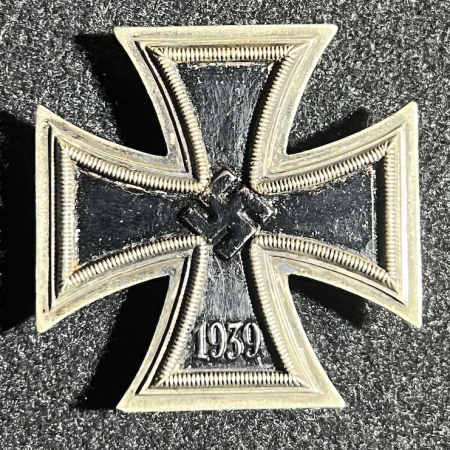
-
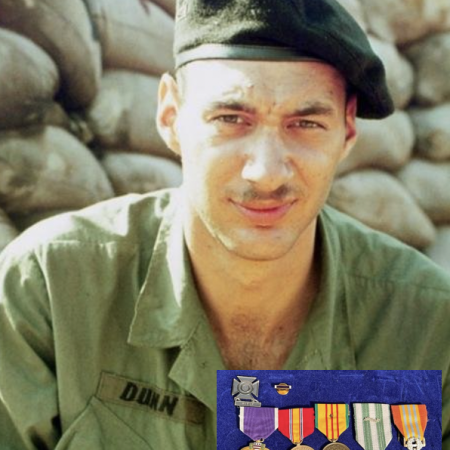
Vietnam US Army – Purple Heart Grouping – SP5 E5 David H Dunn – 15/07/1969 Died Quảng Nam
$850.00Here we have a somber grouping to SP5 E5 David H Dunn, he is remembered and recorded online with his photo and details. Dunn died in Quang Nam, Vietnam in July 1969. (Quảng Nam), Dunn is mentioned in: To Lay Down One’s Life for You, Brother A Novel Based on Fact By M. J. McCarthy · 1994 More details: https://www.honorstates.org/index.php?id=270811 https://www.vvmf.org/Wall-of-Faces/14240/DAVID-H-DUNN/ Casualty Date July 15, 1969 War Vietnam War Service Branch Army Rank Specialist Five Specialty Medical Specialist Unit/Group : 26th Engineer Battalion, Headquarters Company Casualty Type Died through non-hostile action Location South Vietnam, Quang Nam province Notable Awards National Defense Service Medal Vietnam Campaign Medal Vietnam Service Medal David is honored on the Vietnam Veteran’s Memorial in Washington DC. Name inscribed at VVM Wall, Panel 21w, Line 124. Last two photos are for reference only.
-

WWII Original Pilots Trench Art US Army Air Corps 8th Air Force 55th GP – Lockheed P-38 Lightning – Made from 50cal Ammo by Sgt Royal McShea Jr – Normandy & Ardennes 1944/1945 – Rare
$1,350.00An incredible piece of Trench Art, this was made by the Royal McShea Jr who served with the 55th Fighter Group US AAF. Constituted as 55th Pursuit Group (Interceptor) on 20 Nov 1940. Activated on 15 Jan 1941. Trained with P-43’s. Redesignated 55th Fighter Group in May 1942. Converted to P-38’s and prepared for combat. Moved to England, Aug-Sep 1943. Assigned to Eighth AF. Began operations with P-38’s on 15 Oct 1943; converted to P-51’s in Jul 1944. Engaged primarily in escorting bombers that attacked such targets as industries and marshalling yards in Germany, and airfields and V-weapon sites in France. Provided cover for B-17’s and B-24’s that bombed aircraft plants during Big Week in Feb 1944, gun emplacements during the St Lo breakthrough in Jul 1944, and transportation facilities during the Battle of the Bulge, Dec 1944-Jan 1945. Also patrolled the air over the Channel and bombed bridges in the Tours area during the invasion of the Continent in Jun 1944; patrolled the Arnhem sector to support the airborne invasion of Holland in Sep 1944; strafed trucks, locomotives, and oil depots near Wesel when the Allies crossed the Rhine in Mar 1945. Received a DUC for eight missions to Germany between 3 and 13 Sep 1944 when the group not only destroyed enemy fighters in the air to protect the bombers it was escorting, but also descended to low levels, in spite of intense antiaircraft fire, to strafe airdromes and to destroy enemy aircraft on the ground. Received second DUC for operations on 19 Feb 1945 when the organization flew a sweep over Germany to hit railway tracks, locomotives, oil cars, goods wagons, troop cars, buildings, and military vehicles. Flew last combat mission on 21 Apr 1945. Moved to Germany in Jul 1945 as part of the occupation forces. Assigned to United States Air Forces in Europe. Trained with P-51 and P-80 aircraft. Inactivated in Germany on 20 Aug 1946. Sgt Royal McShea made this amazing statue with original decommissioned 50 Cal Ammo. He was part of the ground crew of the 343rd for 2nd Lt. James C. McVey US SALES ONLY – Or contact us with regards to postage.
-

WWI & WWII Kreigsmarine Wehrpass & Marine Militärpass Matrosen Stolz – SMS Nassau – Battle of Riga – Battle of Jutland – Dog Tag WW2
$545.00Here we have a really interesting KM Grouping. This grouping comes with a Photo on board the SMS Nassau which is modelled in the below video really well: It seems he was called up in WWII and did a small service, for which his WWII KM Tag was added to his Wehrpass when he was discharged. Battle of Jutland
-
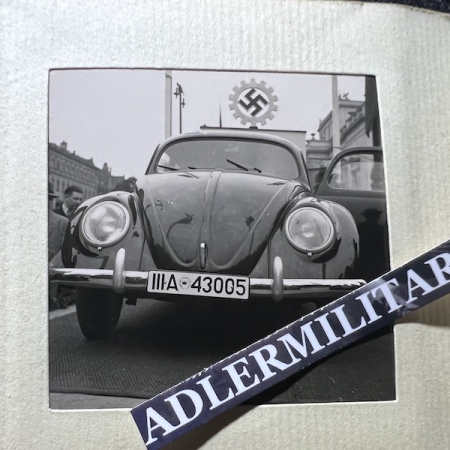
WWII German Min Photo Album Leipzig KDF Wagen Volkswagen Beetle Art Museums Streets with Flags
$225.00An interesting original album of a civilian in Leipzig. Many street photos with the Nazi era banners. The most interesting photo by far is of the KdF Wagen.
-

WWI & WWII US Army Generals Mess Dress – Lt General William Morris – Distinguished Service Cross & Purple Heart – Battle of Saint-Mihiel France 1918 – Rare
$3,950.00Here we have a wonderful original and in fine condition for its age. (Over 100 Years Old) Mess Dress and trousers bought in West Point Military Academy in 1912 – named to W Morris. His Min Bar has never been removed and is from the Interwar Period. Showing his awards at that time. History William Morris was born in the Ocean Grove section of Neptune Township, New Jersey, on March 22, 1890. After graduating from grammar school and high school he was appointed by Congressman Benjamin Franklin Howell to the United States Military Academy (USMA) at West Point, New York, in 1907. He graduated from there in June 1911. After graduation he was commissioned as a second lieutenant into the Infantry Branch of the United States Army and was assigned to the 19th Infantry Regiment at Camp Jossman, Philippine Islands. He then served at Fort McKinley, afterwards transferring to the 15th Infantry Regiment with duty in Tientsin, China, where he served from 1912 to 1914. In 1914, Morris was assigned to the 9th Infantry Regiment in Laredo, Texas, where he served until 1916. While there he married Ida Marguerite Downing, who he met soon after being commissioned in 1911. Morris was then appointed as a Reserve Officers’ Training Corps (ROTC) instructor and basketball coach at Texas Agricultural and Mechanical College (now Texas A&M University), where he served until 1917, when he returned to the 9th Infantry Regiment as its S-2 intelligence officer. WWI Morris was promoted to captain on May 15, 1917, over a month after the American entry into World War I. Thirteen months later he was a major. In July 1918 he was sent to the Western Front and was appointed commanding officer (CO) of the 1st Battalion, 360th Infantry Regiment, part of the 90th Division of the American Expeditionary Force (AEF). He led his battalion in the Battle of Saint-Mihiel and in the Meuse–Argonne offensive. He was wounded on November 1, just ten days before the end of hostilities on November 11, 1918, an action for which he received the Distinguished Service Cross, the nation’s second highest award for valor in the face of the enemy, and the Purple Heart. He remained in Europe with the Army of occupation, commanding his battalion in Germany, and then serving on the staffs of the (AEF) General Headquarters (GHQ) and the IX Corps. Citation for Distinguished Service Cross For extraordinary heroism in action near Villers-devant-Dun, France, November 1, 1918. During darkness he led his battalion in an attack under heavy artillery and machine-gun fire. Upon reaching a hill he exposed himself to heavy fire to reconnoiter personally the enemy position, and then, although wounded by a machine-gun bullet, heroically led his battalion in their advance, refusing to be evacuated, inspiring his men by his personal courage. WW2 In February 1942, two months after the United States entered World War II, Morris, by now promoted to the one-star general officer rank of brigadier general, raised the 6th Armored Division as its first Commanding General (CG). He was promoted to the two-star rank of major general fifteen months later, in May 1943. In 1943 he was CG of the II Armored Corps. He was sent to Italy as a Ground Force Observer for the Salerno landings in September 1943. He returned to the United States and became CG of the XVIII Corps. Upon hearing of the death of Major General Paul Newgarden, CG of the 10th Armored Division, who died in a plane accident, in July 1944, he contacted General George C. Marshall, the U.S. Army Chief of Staff, and requested demotion to command of the 10th Armored Division, then preparing for transfer to the European Theater of Operations (ETO). His request was granted and he led the division overseas on the Western Front, where it played a played a vital role in the relief of Bastogne during the Battle of the Bulge, the largest battle fought by the American Army during World War II. Following this he was assigned to command VI Corps in Lieutenant General Alexander Patch’s U.S. Seventh Army in the U.S. Sixth Army Group, under Lieutenant General Jacob L. Devers, which drove from the Rhine to Italy in the spring of 1945. He would earn the Silver and Bronze Star in WW2.
-

WWII German Army Helmet – M42 – HKP64 – Wehrmacht – Sleeper – US Bring Back Untouched – Complete
$1,250.00Nice sleeper M42. This one was a US GI bring back from Europe. Nicely marked HKP64 with Lot Nr. Not so easy to find like this anymore… Free Shipping Tracked – the price you see is what you pay.
-

